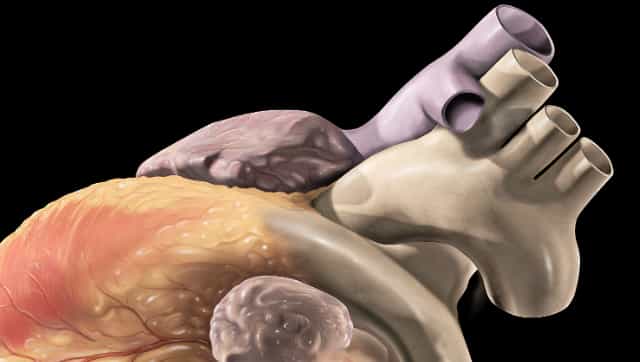Fainting suddenly can be very alarming and dangerous. There’s the loss of consciousness to worry about but there’s also a risk of injury since people who have fainting spells aren’t in control of where or how their body falls. This is precisely the reason why anyone who has had a fainting spell or is generally prone to them, must take the utmost care and all possible precautions to avoid severe injuries or any health complications. Syncope and its symptoms The American Heart Association says that when you have a sudden drop in blood pressure levels — which is called hypotension — the heart is unable to supply sufficient blood to the brain. This insufficient blood flow to the brain causes you to pass out or faint. Medically, fainting is known as syncope and usually happens due to hypotension. It presents with symptoms like feeling lightheaded, drowsy, dizzy or groggy. Changes in vision like blurring or tunnel vision or feeling surreal can also occur. Feeling unsteady on your feet after exercising, eating or making a sudden movement (like standing up or turning around swiftly) is also a symptom of syncope. Blacking out or fainting is the ultimate or final symptom brought on by low blood pressure. Why you faint due to low blood pressure It’s important to know that fainting is not a disease in itself but rather a symptom of an underlying problem - which, as discussed, is most commonly hypotension but could also be caused by neurological or cardiological problems. There are three types of syncope associated with low blood pressure:
- Vasovagal syncope: Also known as cardio-neurogenic syncope, this fainting spell occurs when the drop in blood pressure causes a drop in blood flow to the brain. Some patients with vasovagal syncope also have orthostatic hypotension, where blood flow to the brain decreases when they stand for a while and this causes them to faint.
- Situational syncope: If your blood pressure drops due to dehydration, intense emotional stress, anxiety, fear, pain, hunger or use of drugs, it can cause what is usually known as situational syncope. In these situations, taking away the main stimulus usually helps quell the fainting spell.
- Postural syncope: Sometimes, medications you take or problems like dehydration can put your body in a weakened state. In such a condition, sudden movements like standing up quickly can lead to a sudden and quick drop in blood pressure (usually a drop by 10 to 20 mmHg), and thereby cause you to faint. This is known as postural syncope.
When should you worry about syncope? According to the Cleveland Clinic, occasional fainting spells are nothing to worry about. However, if you are older or have a high risk of chronic diseases — or if you already have a chronic disease — then fainting spells are indeed worrisome. In such cases, arrhythmia or ventricular tachycardia can cause frequent fainting spells and consulting a doctor immediately is vital. Fainting due to intense exercise or exertion should also not be taken lightly as it can lead to severe complications. Dos and don’ts you must know The following are some essential dos and don’ts you must keep in mind when dealing with a fainting spell:
- Do keep a note of your fainting spell and report to your doctor when it happened, what preceded it, how long you were unconscious for and how long it took you to recover and get back on your feet.
- Do provide immediate bodily support if you see someone feeling faint around you. This can prevent a fall and injuries. Help the person lie flat on the floor with their head tilted to the side so that their tongue doesn’t fall back into their throat.
- Do sit or lie down slowly when you feel faint and avoid getting up on your feet until the fainting spell has passed completely.
- Don’t ignore a fainting spell no matter how minor it seems. Consult a doctor and head to the hospital emergency room immediately if your fainting spell is accompanied by chest pain, palpitations or other symptoms.
- Drink enough fluids throughout the day and don’t skip meals. This will keep your electrolytes balanced and prevent a sudden drop in blood pressure.
- If you have low blood pressure in general, adding salt to your diet or having salted water or lemonade after a fainting spell can help. However, it’s important to consult a doctor before increasing your daily salt intake in case it leads to adverse effects.
- Don’t wear tight clothing or suffocating jewellery if your blood pressure is usually on the lower side. These can impede blood circulation and cause you to faint or feel dizzy too.
- Don’t slap, shake or jerk a person who has fainted. Don’t try to make them drink water until they have regained consciousness.
For more information, read our article on Fainting . Health articles in Firstpost are written by myUpchar.com, India’s first and biggest resource for verified medical information. At myUpchar, researchers and journalists work with doctors to bring you information on all things health.
)